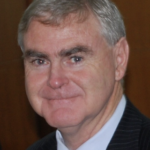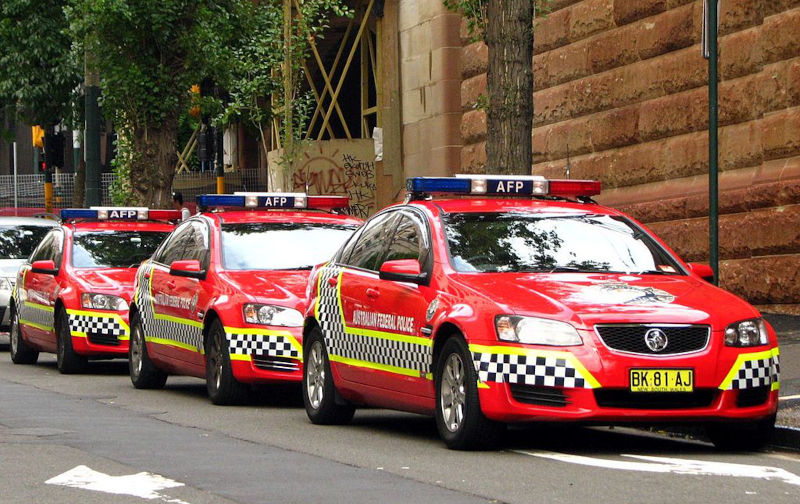Information provided to the Senate committee inquiring into inappropriate handling by PWC Australia of confidential tax information has revealed that AFP Commissioner Reece Kershaw and former NSW police commissioner Mick Fuller and now PWC partner met in July 2022. We are told that the purpose of the meeting involved discussion around Fuller via PWC Australia undertaking a comprehensive independent review of the AFP’s delivery of policing services to the ACT government. According to media reports, no minutes of the meeting between Kershaw and Fuller were made and the contract worth $750,000 was awarded without any tender being called.
Kershaw has rejected claims he has a conflict of interest over his relationship with Fuller. While AFP chief operating officer Ms Charlotte Tressler, advised the senate inquiry that Kershaw was not involved in awarding PwC Australia the $750,000 contract for work that would be undertaken by Fuller. And she further advised that the process involving the selection of PWC Australia complied with Commonwealth procurement rules and the firm was chosen because it was the best value for money.
Clearly Kershaw and Tressler have no idea what a conflict of interest involves. While not binding on AFP employees, perhaps they should seek guidance from the Australian Public Service Commission. According to the APSC there are two types of conflicts of interest: real and apparent. A real conflict of interest occurs where there is a conflict between the public duty and personal interests of an employee that improperly influences them in the performance of their duties. An apparent conflict of interest occurs where it appears that an employee’s personal interests could improperly influence the performance of his or her duties, but have not. The difference between the two is the outcome. With a real conflict of interest, a person is improperly influenced and with an apparent conflict there is a risk the person could be improperly influenced.
It is irrelevant that Kershaw did not sign the contract. He met with a friend, the partner of PWC who would undertake the work and discussed what it involved. He has an apparent conflict of interest. Using the argument that Kershaw having not signed the contract avoided a conflict of interest arising, he and Tressler would have the senate believe that the person who did sign the contract, did so independently and would have not signed it if he/she thought it was not appropriate to do so. Given the power and influence of the AFP Police Commissioner, no rational independent person viewing the situation from a distance would believe that argument.
To have an actual conflict of interest in the PWC contract, Kershaw would need to have some personal interest in it. While he has an apparent conflict of interest, his reported friendship with Fuller is not enough to ground an actual conflict of interest. According to one source, when Peter Dutton, was Minister for Home Affairs and looking for a person to replace Andrew Colvin, the retiring AFP Commissioner, he apparently consulted Fuller, who recommended Kershaw. That information is uncorroborated. However, if that information is true and I have no evidence to confirm it is and Kershaw knew that Fuller had provided a reference for Kershaw, either verbal or written, to support Kershaw, then an actual conflict of interest has arisen in relation to the PWC contract. If the information is accurate, it would create the perception that Kershaw has rewarded Fuller for his support in securing the AFPs top job. And if it is true, it would be a very serious breach of AFP Core Values.
Tressler’s claim the contract with PWC Australia represented best value for money does not stack up either. How can that be substantiated when no tender was called, and bids compared to determine if the quote by PWC Australia was the best value option? The claim is a nonsense. Calling for tenders is the best way of determining if the Government is getting real value for money. And I am confident there would have been several submissions made by various retired senior Australian and foreign police officers who would have had the requisite knowledge and skill to do the job.
And Tressler can hardly be regarded as being totally independent in relation to the PWC Australia contract with the AFP. Her LinkedIn profile records that she was a Director in PWC between July 1996 and Dec 2009. A period of over 13 years.
And why weren’t tenders called? Why the rush to review ACT Policing? And why were no minutes of the Kershaw/Fuller meeting made? What if anything did they have to hide? If there was nothing to hide, then minutes of the meeting should have been made. No official minutes of contract discussions defeats the FOI process and reduces transparency. Kershaw promised to increase AFP transparency when he was appointed commissioner. No tender, no minutes, and dealing with a friend directly creates the impression that it is all done as a reward for a mate.
And as Kershaw and Tressler should know, in deciding whether a conflict of interest exists, what matters is not what they think of the situation, but what a reasonable and independent person would conclude observing from an arm’s length distance and knowing all the facts. The actions by Kershaw as leader of the AFP has created a bad impression for him and the organisation. The AFP investigates corruption including foreign bribery offences. Managing conflicts of interest and the keeping of accurate records is essential to counter allegations of bribery and corruption. What message does his actions send to Australians and Australian businesses? That there is one rule for them and another for the AFP and its Commissioner?
When the senate inquiry reconvenes after the break, these issues must be pursued.

Chris Douglas
Chris Douglas served for 31 years with the AFP. He is the owner of Malkara Consulting, a consultancy firm that specialises in the provision of training and advice in relation to financial crime including money laundering, terrorist financing, corruption and bribery in Australia, Asia, and Africa. He is not affiliated with any political party.
He may be contacted at Chris.douglas@malkaraconsulting.com.
